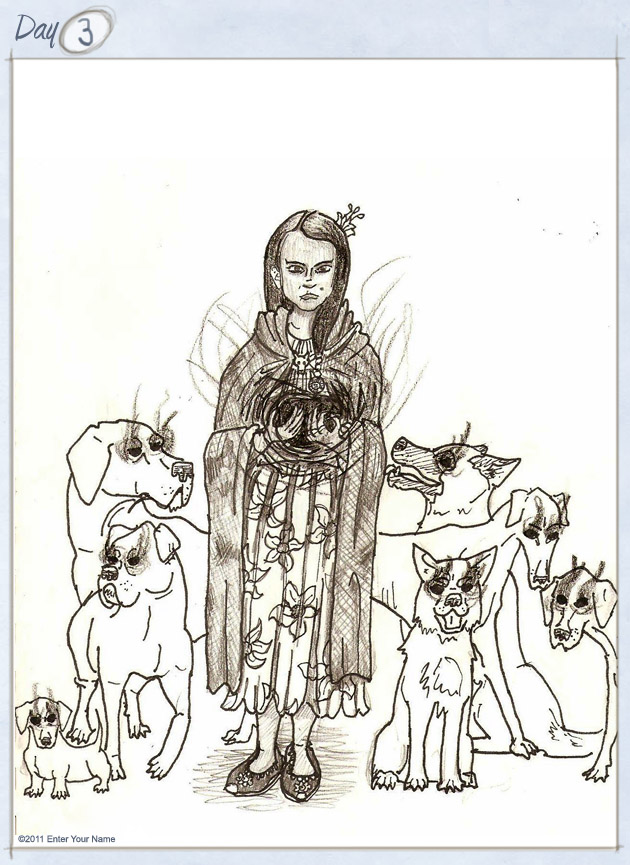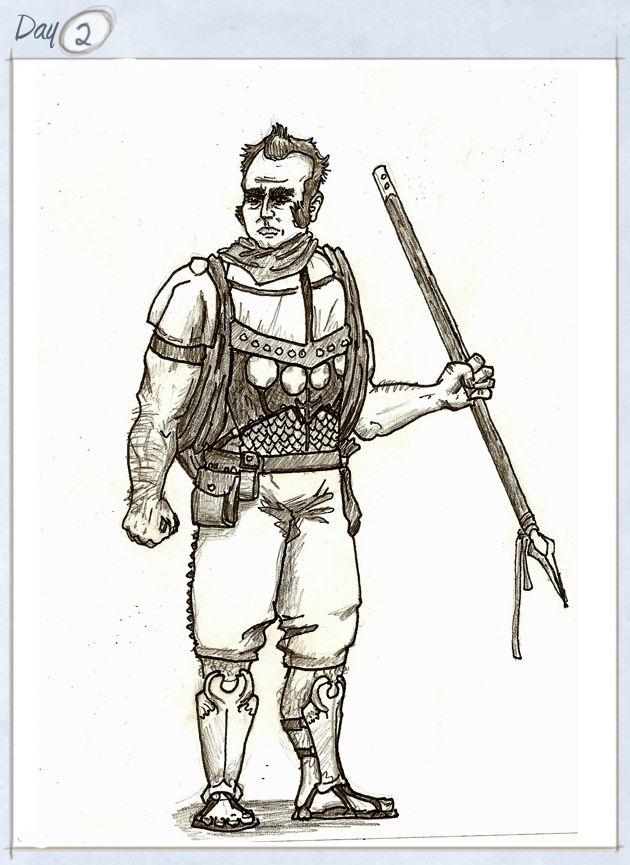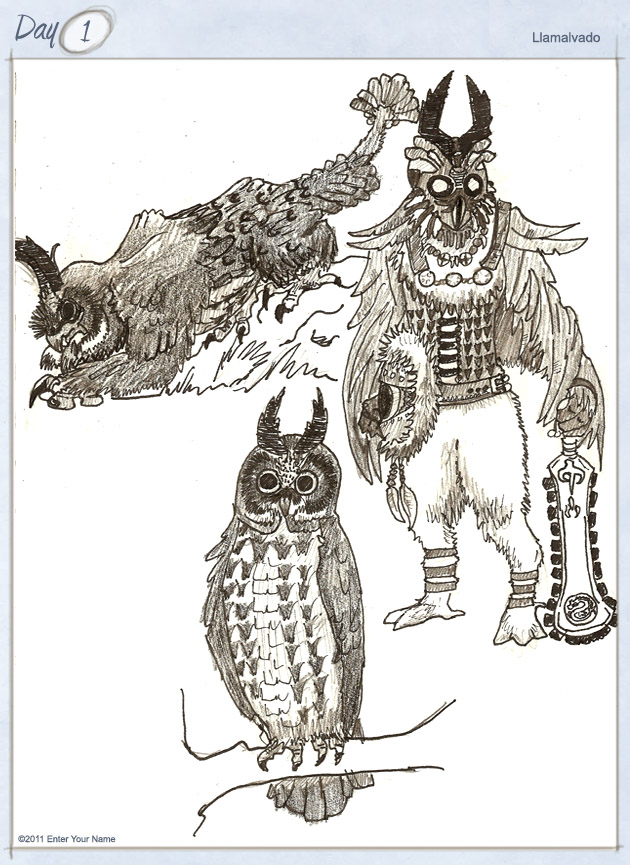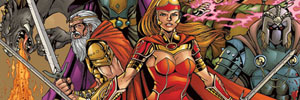Author Archive: Llamalvado
DAY 3: La Fantasma de los Perros
 In 1976 the government of Isabél Perón was overthrown through a military coup, and General Rafael Videla established a military junta. Thus began a particularly dark period in Argentina’s so called “Dirty Warâ€. The new far-right regime instigated a period of overall chaos wherein thousands of suspected “subversives†and left-wing sympathizers were kidnapped, tortured, or assassinated at the hands of the government’s “security forces†and roving right-wing death squads in a self-termed “National Reorganization Processâ€. Young or newborn children were commonly taken away from their mothers in various state-sponsored concentration camps and redistributed to couples affiliated with the regime in order to mitigate the proliferation of subversive ideas. While many of those captured were in fact members of militant left-wing rebel militias, the “Dirty War†was just as much a witch hunt wherein thousands of victims were indeed innocent.
In 1976 the government of Isabél Perón was overthrown through a military coup, and General Rafael Videla established a military junta. Thus began a particularly dark period in Argentina’s so called “Dirty Warâ€. The new far-right regime instigated a period of overall chaos wherein thousands of suspected “subversives†and left-wing sympathizers were kidnapped, tortured, or assassinated at the hands of the government’s “security forces†and roving right-wing death squads in a self-termed “National Reorganization Processâ€. Young or newborn children were commonly taken away from their mothers in various state-sponsored concentration camps and redistributed to couples affiliated with the regime in order to mitigate the proliferation of subversive ideas. While many of those captured were in fact members of militant left-wing rebel militias, the “Dirty War†was just as much a witch hunt wherein thousands of victims were indeed innocent.
While many of the mysteries surrounding the so called “Desaparecidos†(The Disappeared or Vanished) were revealed upon the instatement of a democratic government in 1983, little is known, or discussed for that matter, about the true nature of “Nuestra Fantasma de los Perrosâ€. While accounts from eyewitnesses are sparse, the legend was very prevalent in the low income (and often socialist sympathizing) barrios of Buenos Aires, Rosario, Corrientes and Córdoba. Descriptions of a petite woman of native descent, wearing a worn, dark stained gray cloak, and a pristine white, flower-pattern dress underneath were prevalent amongst the many rumors circulating in the populace. She was always accompanied by at least 4 stray dogs—though the number was said to grow with every kidnapping that occurred. It was rumored that her canine followers obeyed her through a dark aura which seemed to emanate from her hands. Several Death squad soldiers would admit years later that during a run in with “La Perra†(lit. “Bitchâ€) the eyes of her dogs would cloud with what appeared to be smoking tar immediately prior to an attack. The gruesome visages of the would-be abductors and assassins resulted in a great drop in recruitment for the death squads, and had a profound protective effect on those neighborhoods where the woman had shown up. While superstitious citizens offered scraps of meat and bread on their doorsteps at night as a plea to the woman and her companions for protection, the president himself issued several city wide dog-hunts in an effort to curtail the threat of this “Perónist vigilanteâ€. The hunts were called off very quickly due to a mysterious absence of all dogs during the hunts. The loss of a dozen more men to unknown causes also frightened many of the hunters from ever searching in the first place.
Since the woman never spoke or appeared for more than minutes at a time, her origins remain unknown. Some believe she is the restless spirit of a Mapuche shaman seeking revenge on the ancestors of European settlers. Many of the largely Catholic populace viewed her as a wrathful incarnation of the Virgin Mary and a herald of the end-times. The last recorded account of “La Fantasma†came from Cristina Silviatore, the wife of Marcos Silviatore, a prominent lieutenant in the Argentine Anti-Communist Alliance, who reported a cacophony of barking outside of her home. Stepping out to inspect the commotion she caught a glimpse of a cloaked figure staring mournfully into her daughter’s bedroom window. The figure vanished quickly having noticed Cristina, and the dogs subsequently fell silent. After failing to conceive on their own, Marcos had brought the child home one evening in 1976, claiming to have just finalized the adoption papers at a nearby orphanage. As hard as she would try to convince herself that what she had seen was just a trick of the mind, she was never able to look at “daughter†the same way again.
DAY 2–Jaxian Triocezzi
 Lethal with a spear and deadly accurate with a javelin, Jaxian was amongst the most feared soldiers of the Matassoua tribes during their conflict with the rapidly expanding Sparevian empire from the plains to the south. Despite the sheer numbers of better equipped imperial troops, the courage and skill of the Matassoua on the battlefield resulted in a standstill. Understanding that the stamina and morale of the sparsely populated mountain tribes could not withstand the Sparevian onslaught forever, the consuls of the Matassouan league called for an indefinite armistice. The tribes would cease their raids conducted on outlying imperial villages and not intervene with imperial movement or trade throughout their mountain passes in exchange for solidarity of their present land. With a profound admiration of the ferocity with which the tribes fought to preserve their home, and despite the agricultural and strategic benefits the Matassouan land would provide, Emperor Harkinius accepted the armistice. This came on the condition that Jaxian and five men from his battalion serve the emperor as his personal honor guard, and that the beautiful young Luciella, Jaxian’s niece, agree to become the Emperor’s newest wife. Knowing that their service to their former enemy meant the safety of the Matassoua, those requested by Harkinius left home for the last time to serve in the seat of the empire: Tercii. Jaxian and his men were with the utmost respect by their new employer: fine food, drink and armaments were provided at a simple request to the new honor guard. Jaxian’s now legendary defeat of a particularly troublesome and disliked Imperial general had won him special favor with Harkinius, and Triocezzi even found himself a confidant and occasional advisor to the Emperor. While life on his end was certainly comfortable, Jaxian grew increasingly anxious with the state of his young niece, who appeared increasingly distraught and frazzled during each of the rare occasions when they had the opportunity to speak. Luciella’s concerns with her new life came to a head late one evening as she snuck from the wives’ chambers to the barracks where Jaxian and his men lived. She explained to her uncle the Emperor’s tendency to pass the women in his harem not currently being “used†to his son—a sadistic young man with a penchant for violent military conquest and apparently deranged sexual preferences. She expressed to him her fear that any refusal of the prince’s advances would be seen as a breach of the terms of the armistice and put their people in jeopardy, and therefore could not consider absconding from the city—however tempting that thought was. Jaxian assured his Luciella that he would speak with Harkinius concerning her situation, acknowledging his own influence over the Emperor’s decisions. Luciella thanked her uncle for his support and silently crept back to her chambers.
Lethal with a spear and deadly accurate with a javelin, Jaxian was amongst the most feared soldiers of the Matassoua tribes during their conflict with the rapidly expanding Sparevian empire from the plains to the south. Despite the sheer numbers of better equipped imperial troops, the courage and skill of the Matassoua on the battlefield resulted in a standstill. Understanding that the stamina and morale of the sparsely populated mountain tribes could not withstand the Sparevian onslaught forever, the consuls of the Matassouan league called for an indefinite armistice. The tribes would cease their raids conducted on outlying imperial villages and not intervene with imperial movement or trade throughout their mountain passes in exchange for solidarity of their present land. With a profound admiration of the ferocity with which the tribes fought to preserve their home, and despite the agricultural and strategic benefits the Matassouan land would provide, Emperor Harkinius accepted the armistice. This came on the condition that Jaxian and five men from his battalion serve the emperor as his personal honor guard, and that the beautiful young Luciella, Jaxian’s niece, agree to become the Emperor’s newest wife. Knowing that their service to their former enemy meant the safety of the Matassoua, those requested by Harkinius left home for the last time to serve in the seat of the empire: Tercii. Jaxian and his men were with the utmost respect by their new employer: fine food, drink and armaments were provided at a simple request to the new honor guard. Jaxian’s now legendary defeat of a particularly troublesome and disliked Imperial general had won him special favor with Harkinius, and Triocezzi even found himself a confidant and occasional advisor to the Emperor. While life on his end was certainly comfortable, Jaxian grew increasingly anxious with the state of his young niece, who appeared increasingly distraught and frazzled during each of the rare occasions when they had the opportunity to speak. Luciella’s concerns with her new life came to a head late one evening as she snuck from the wives’ chambers to the barracks where Jaxian and his men lived. She explained to her uncle the Emperor’s tendency to pass the women in his harem not currently being “used†to his son—a sadistic young man with a penchant for violent military conquest and apparently deranged sexual preferences. She expressed to him her fear that any refusal of the prince’s advances would be seen as a breach of the terms of the armistice and put their people in jeopardy, and therefore could not consider absconding from the city—however tempting that thought was. Jaxian assured his Luciella that he would speak with Harkinius concerning her situation, acknowledging his own influence over the Emperor’s decisions. Luciella thanked her uncle for his support and silently crept back to her chambers.
The blaring of horns the next morning informed of an Imperial decree to be given in Tercii’s grand plaza. The emperor was to speak to the crowds himself. Strangely enough, the honor guard were not expected to accompany Harkinius, but instead were to travel en masse with the rest of the imperial troops in attendance. At the center of the plaza, the Harkinius beckoned for a hooded figure to be brought forth and bound to a post. The emperor spoke of honor and treachery and denounced the hooded figure as a traitor—of violating a binding agreement. The hood was removed and revealed the face of Luciella. Harkinius announced to the gathering crowd that his newest wife had been caught sneaking back onto the palace grounds in the dead of night. (In fact, the prince himself had gone “searching†for her and alerted his father to her absence). Clearly this woman, a former enemy of the empire, was returning from a tryst with a Matassoua lover, and undoubtedly providing him the floor plan of the emperor’s chambers to facilitate an assassination. This gross display of disloyalty effectively nullified the Matassouan armistice in the eyes of the empire—effectively renewing the conflict. Knowing the truth Jaxian quickly came to understand that these false accusations were just the opportunity Harkinius was looking for to “justify†his continued conquest of Matassoua. He attempted to reach the center of the plaza and protest, but he and his men had been strategically separated from the emperor with many rows of soldiers. In a flash, Harkinius withdrew a heavy dagger from his cloak and slashed open the abdomen of the young woman, who looked on in shock as the front of her robes began to turn dark red. Bellowing, Jaxian allowed rage to consume him and took his spear in hand. Needing only a second to adjust for distance and angle, the veteran hurled the weapon straight and true—dead center into the heart of Harkinius. The hordes of Sparevian soldiers were now upon Jaxian and his men, fighting brutally to escape the crowd and regroup. However, only 4 of the original 11 were able to regroup in the sewers of Tercii later that evening. With Matassoua now in immediate danger, the youngest of the group was sent to escape back home to warn the tribes of the impending attack, and the remaining 3 set about sabotaging the Sparevian military command. Having learned the faces and living quarters of Harkinus’s top commanders from their service in the honor guard, the first four generals were ambushed with relative ease. With accumulating fatigue from constant movement and lack of food—the three were eventually captured en route to their last target. As battles began anew on the Matassouan home front, the three were tortured, and publicly executed. The hearts and hands of Jaxian and his men were skewered onto the very spear responsible for the death of the emperor and brought out onto the battlefield to mock and intimidate their enemies. However, the grisly image quickly became a symbol of Matassouan pride—and combined with the apparent inexperience of the newly promoted Sparevian commanders; they rallied forth and humiliated the imperial troops in several key battles. News of Luciella’s murder and Jaxian’s sacrifice steadily dispersed across the tribes of the mountains, many of which joined the war effort to paralyze further Sparevian conquest northwards. Demoralized and rendered impotent, the imperial onslaught ceased and yet another uneasy (yet less easily manipulated) treaty was drawn up. For ages to come, the Javelin, heart, and hands would adorn every shield and banner brought into battle to honor the bravery of the Triocezzi clan and their comrades.
Acheryx
A stygian owl in the mortal world, a spirit guide to the souls of dead men and women in the ethereal lumen. Acheryx will advise, assist, and guide the soul of the human he has chosen through life, and the trials of death. Success in such trials will determine his human’s eligibility to be recycled through the mortal realm with mental and physical upgrades. Subsequent victories in death’s trials entail further perks upon reincarnation–many cycles nearly always ensure a spirit and body capable of great influence upon the world.
While spirit guides are able to craft for themselves nearly any form they wish–however Acheryx prefers a beast and anthropomorphic form in addition to his corporeal owl body while assisting his human in the afterlife.











#30Characters Chatter…